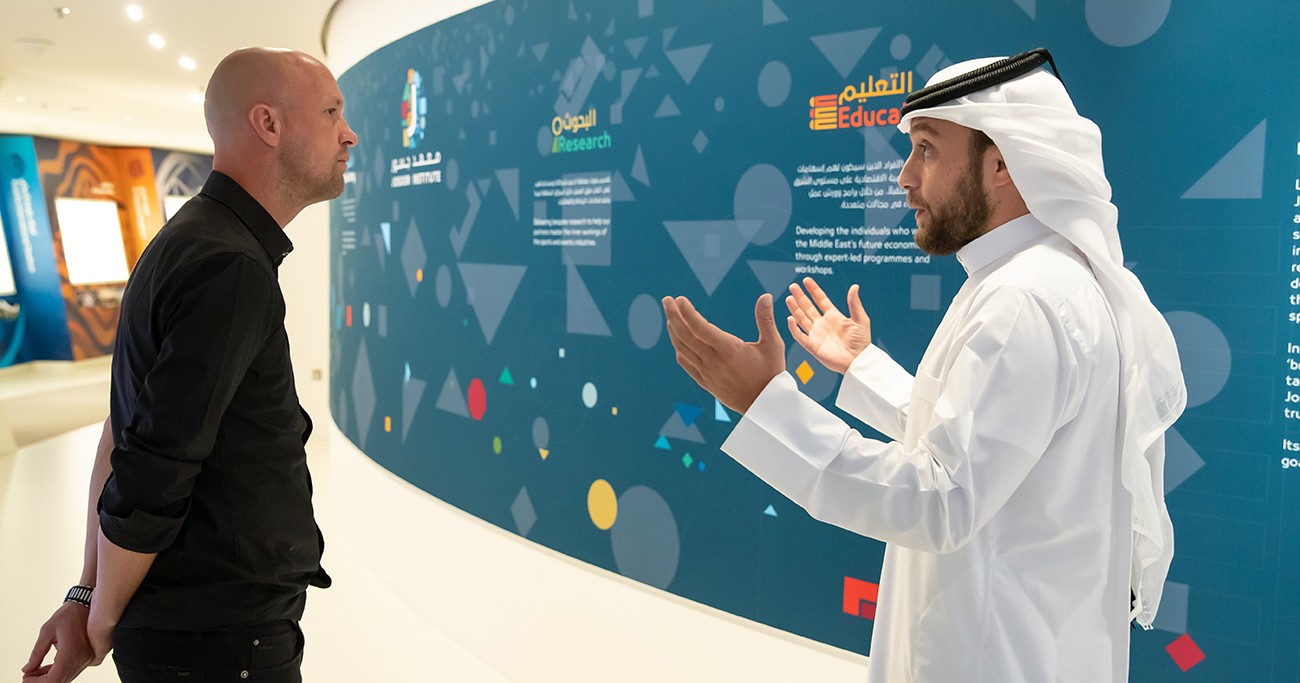.jpg)
_1-itok=GFMKQ6A9.jpg)
The plans and programmes being delivered by the Supreme Committee for Delivery & Legacy (SC) show a commitment to hosting an incredible FIFA World Cup™ and ensuring a lasting and far-reaching legacy of the tournament, according to Jordi Cruyff.
The former Manchester United and FC Barcelona winger – now manager of Chinese Super League side Chongqing Dangdai Lifan – was recently in Doha for a winter training camp, during which he took time out to visit Aspire Academy and the SC's Legacy Pavilion.
Since retiring he has carved out a successful and widely respected career as a director of football within the professional game in Europe. And as well as a stellar 16-year playing career – spent primarily in La Liga – Jordi, son of Johan, also carries one of the most famous surnames in football. It is a name synonymous with legacy – and through organisations such as the Cruyff Foundation, the subject of affecting positive social change through the power of sport is one close to his heart.
"The main question that many people ask themselves is what happens the day after the tournament," Cruyff told sc.qa. "Today all my questions were answered, with a lot of thoughts in place with regard to what to do with the stadiums, how to continue the sport in Qatar, to use the facilities, to make the best out of each area that is completely rebuilt and prepare themselves for the World Cup. I think it's super important, but also interesting for the people that stay and that sport continues to dominate their lives."
As well as touring Aspire Academy in the morning, Cruyff was also provided with an overview of Generation Amazing – the SC's flagship corporate social development programme – and Josoor Institute, which was set up to help train a generation of graduates with the technical, leadership and business skills required to build a sustainable industry in sports and event management. And they were legacy commitments that impressed Cruyff.
He said: "I think it's important to have organisations like Generation Amazing to help a lot of kids, girls and boys, to help them with social integration and to give them the opportunities to fulfill the dreams that they have," he explained. "A lot of people need help to give them the platform where they can evolve, socialise, enjoy and learn education – everything that comes with being young and fulfilling your dreams."
On Josoor Institute, he added: "It's important to bring ideas from all over the region and the world – and to put them together to have the best possible tournament, but also for the day after to take care that sport remains organised and for everything to be taken care of. It's a responsibility to not only ensure everyone enjoys the tournament, but also for the day after."
Cruyff, who plays an active role in the legacy work being carried out in his father's name, concluded by emphasising the responsibility global events such as the FIFA World Cup™ have on affecting positive development in the regions it visits.
"Sport influences a lot of lives, and reaches a lot of cultures," he said. "The World Cup is the biggest sports event, because football is the most popular sport. This event can change a lot of lives, and a lot of regions.
"From everything I've seen on this trip – from the first to the last moment – from the Aspire Academy, the city, the metro, the stadiums and the facilities…I've been really amazed and positively surprised by everything I've seen so far."

